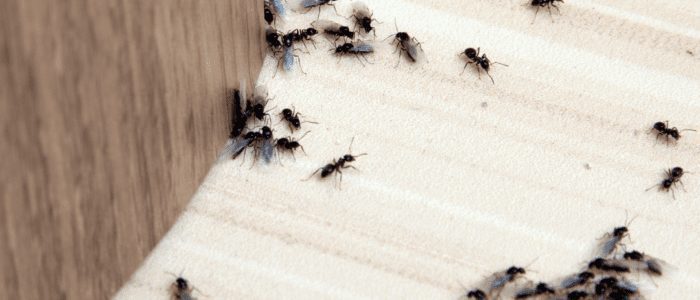5 Reasons to Ditch DIY Pest Control: Expert Advice for a Critter-Free Home
Pests are an unfortunate reality in the humble abodes we work so hard to maintain. From pesky ants to formidable rodents, they invade our spaces, threaten our peace of mind, and can even pose health risks. However, before you reach for that can of bug spray or set up a spring-loaded trap, there’s an important fact to consider: DIY pest control may not be the best solution.
For homeowners seeking a quick fix, the aisles of home improvement stores seem like a one-stop-shop for battling unwanted critters. But in this battle, the wrong approach can be costly, both in terms of money and well-being. In this in-depth exploration, we’ll delve into the reasons professional pest control service may be the missing piece in your home maintenance puzzle.
Understanding the Risks of DIY Pest Control
Before we explore the advantages of professional service, it’s crucial to understand the potential pitfalls of DIY methods. While some products can be effective, many over-the-counter solutions and homemade recipes pose risks to both the environment and human health. Misuse of pesticides can lead to contamination of water sources, harm to beneficial insects, and hazardous exposure for pets and children. Additionally, incorrect application can sometimes exacerbate problems, leading to increased pest resistance and population growth.
When we consider these risks, it’s clear that a nuanced, strategic approach is necessary to manage pests effectively and responsibly. Here’s why turning to a professional may often be the best course of action.
Reason 1: Access to Advanced Solutions and Techniques
Pest control is a science, and professionals are equipped with the latest tools, technologies, and techniques honed by industry expertise. While you may rely on the same tried-and-true method to deal with ants each year, professionals are constantly evolving their strategies to ensure the most effective and targeted treatments. They employ integrated pest management (IPM) techniques that focus on long-term prevention through a combination of strategies, reducing the need for constant reapplication of potentially harmful treatments.
These advanced solutions are often out of reach for the average homeowner. For instance, ultrasonic repellents, which emit high-pitched sounds to deter pests, have gained popularity, but their effectiveness is often dubious. Professionals, however, have access to ultrasonic devices that are carefully calibrated and are just one part of a comprehensive pest management program that includes sealing entry points, eliminating food sources, and targeted pesticide use only when necessary.
Reason 2: Pest Identification and Customized Treatments
Do you know the difference between a carpenter ant and a field ant? Incorrect pest identification can lead to the use of ineffective treatments, as different species may have very distinct behaviors and vulnerabilities. A professional pest control service begins with a thorough inspection and identification of the pest problem, leading to a customized treatment plan that targets the specific issues in your home.
By tailoring treatments to the unique characteristics of your infestation, professionals can not only eliminate current pests but also prevent those of the same variety from returning. This level of precision is not feasible with off-the-shelf solutions, which offer mostly one-size-fits-all treatments.
Reason 3: Proper Application and Safe Handling
Pesticides, when necessary, should always be handled carefully to prevent unintended consequences. Misapplication can not only prove ineffective but also lead to exposure risks for your family. Professionals are highly trained in the proper use and disposal of these chemicals, ensuring that the treatment is both effective and safe.
They also adhere to regulations set by governing bodies and have a clear understanding of legal restrictions, such as when they can and cannot use certain chemicals. This expertise helps avoid costly mistakes that can occur when untrained individuals handle potent substances without the necessary precautions.
Reason 4: Value of Time and Long-Term Savings
While the perceived cost of DIY pest control may be lower upfront, the value of your time can’t be overlooked. Eliminating persistent pests can take multiple attempts and many hours of research, shopping, and application. Not to mention, the time spent without a definitive solution can allow the infestation to worsen.
Professional pest control companies offer convenient schedules and times, taking the burden of pest control off your shoulders. Additionally, because they focus on long-term prevention rather than short-term fixes, you’re less likely to be troubled by the same pest problems time and time again, which can lead to significant savings in the long run.
Reason 5: Expert Insight into Sanitation and Prevention Methods
Professional pest control extends beyond the treatment phase to imparting knowledge about home maintenance, sanitation, and preventive measures. An expert can educate homeowners on how to make their homes less hospitable to pests in the first place. This could involve simple lifestyle changes, such as not leaving food out or sealing pet food containers, that can make a significant difference in deterring pests.
The more you understand about the nature of your particular pest problem, the better you can address the conditions that lead to it. Over time, this understanding and implementation of prevention strategies can lead to a healthier living environment for you and your family.
In conclusion, while the allure of DIY solutions is strong, the complexity and potential risks of pest control should not be underestimated. When it comes to protecting your home and loved ones, the investment in a professional pest control service can bring peace of mind, efficiency, and long-term cost-effectiveness. By understanding the benefits of expert help, you’re not only taking a stand against unwanted intruders but also ensuring that your home remains a haven, not just from pests, but from the risks associated with improperly managed pest control.


Comments are closed.